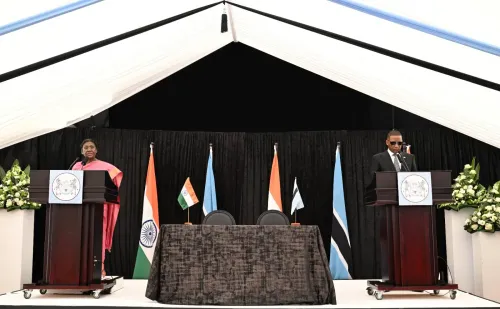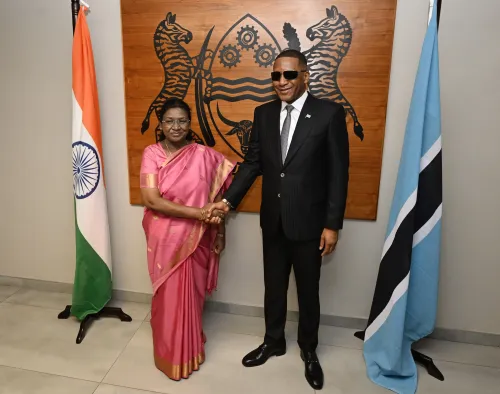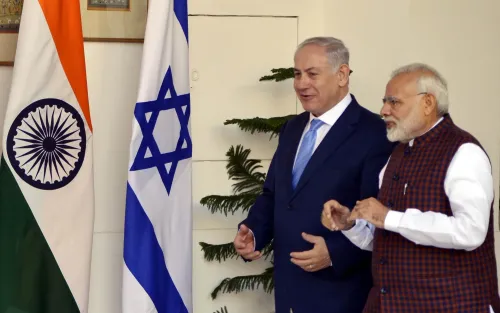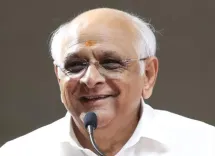What Follow-Up Measures Did President Lee Propose for the South Korea-US Trade Agreement?
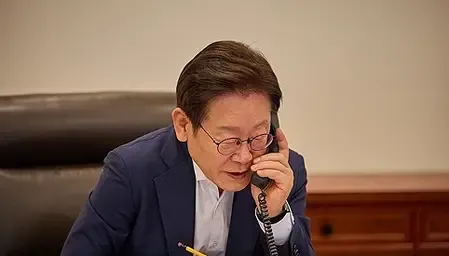
Synopsis
Key Takeaways
- Tariffs reduced from 25% to 15%
- $350 billion investment commitment from South Korea
- Strengthening US-South Korea economic ties
- Concerns over domestic market stability
- Government urged to monitor public concerns
Seoul, July 31 (NationPress) President Lee Jae Myung called on the government to vigilantly address public apprehensions regarding the trade agreement with the United States (US) and devise follow-up strategies to safeguard the nation's essential interests.
This appeal came after Seoul secured a trade accord with Washington that reduces reciprocal tariffs on automobiles and other goods from an initial 25% to 15%, in return for a commitment of $350 billion in investments and $100 billion in energy purchases from the US, according to Yonhap News Agency.
During a meeting with senior advisors, Lee remarked, “This is expected to enhance economic collaboration and strengthen the alliance between South Korea and the US.”
He acknowledged that while a significant hurdle has been crossed, the global trade landscape is likely to evolve rapidly.
Lee urged the administration to tackle structural issues in the domestic market by implementing strategies to stimulate consumption and broaden export markets.
“I expect relevant ministries to closely monitor public sentiments and adequately prepare measures to protect our vital national interests,” he stated.
Officials noted that South Korea successfully avoided further US demands for market access in sensitive areas like beef and rice; however, the reduced tariffs, effective from Friday, have raised worries about the country’s export-driven economy amid declining domestic demand.
Earlier, the two nations revealed a bilateral trade agreement that establishes a 15% tariff on South Korean exports to the US, down from the projected 25%, alongside a commitment for $350 billion in South Korean investments in US sectors such as shipbuilding and energy.
The agreement also implements the 15% tariffs on automobiles, decreasing from the prior 25%, while South Korea managed to avert additional US market access demands in critical sectors like beef and rice. The new terms are set to start on Friday (US time).
In a Facebook post, President Lee Jae Myung expressed, “We have surmounted a major challenge. This agreement dispels uncertainty in our export landscape and establishes an environment where we can compete on equitable or superior terms with other nations.”


